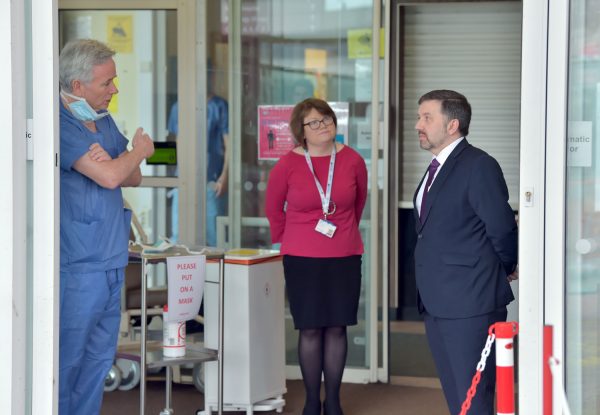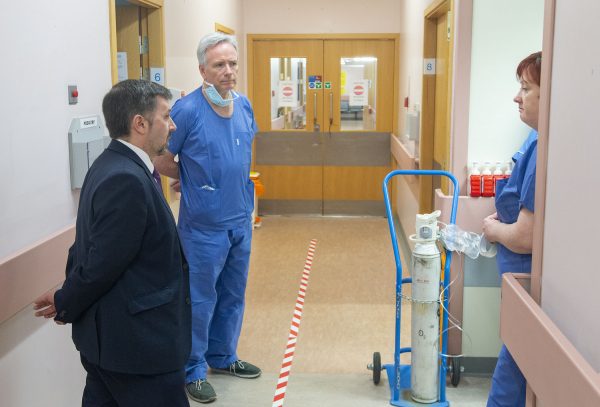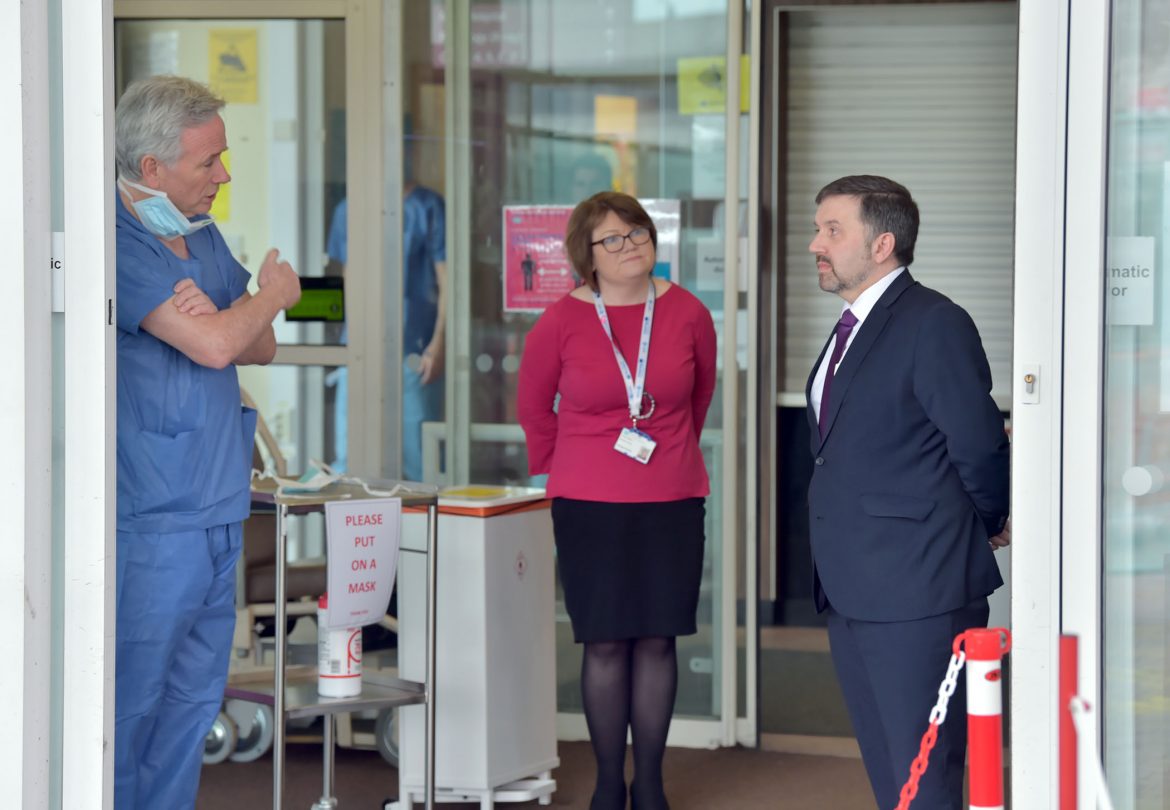
Health Minister Robin Swann meets Dr Tom Black of the BMA in March this year at Altnagelvin Hospital over Coronavirus screening
The findings come as a further five COVID-19 deaths were confirmed in the North of Ireland yesterday, bringing the death toll to 381.
The Department of Health also reported an additional 78 people have tested positive for the virus, raising the total of confirmed cases to 3,767.
As of yesterday, there were also a total of 32 patients with COVID-19 in intensive care here.
Overall, the number of deaths across the UK rose by 315 to 28,446.
In the Republic, a further 19 people have died with COVID-19 to bring the national total to 1,303.
A major survey published today by the British Medical Association NI found that 60.84% of GPs here believe that the health prospects of those without the deadly virus here are significantly or slightly worsening.
There are concerns people are not using health facilities over fears of catching the Coronavirus.
Derry-based Dr Tom Black, BMA Northern Ireland council chair, said it is imperative the medical needs of patients who do not have the infection are addressed quickly.
Dr Black said urgent attention needs to be given to getting non-Coronavirus patients “back into the system”.
“As we move towards the second phase of COVID-19 and what will be a ‘new normal’, we need to urgently look at how we begin to get patients with non-COVID illnesses back into the system, as well as dealing with ongoing Covid cases and the new COVID cases that will undoubtedly emerge,” he said.
The BMA survey also found that 44% of members said their main concern at this time was the longer-term impact on patient clinical demand.
Dr Black said the findings of the survey – the largest of its kind undertaken by medics here so far during the pandemic – show the health authorities must intervene to improve the situation for non-COVID patients.
“Doctors can see that without some type of ‘twin track’ approach now being developed, the prospects for patients will worsen,” he explained.
“The Health Minister (Robin Swann) has acknowledged that we already had a dreadful situation with our waiting lists and that has not got better during the pandemic,” added the BMA chairperson.
“But it will be even more challenging now to address those long waits, see new patients who have been reluctant to seek help during the initial pandemic phase and maintain the ability to pivot our services again should we see a second surge in Coronavirus cases.”
Dr Black said lessons had to be learned from the initial stage of the pandemic, and apply them going forward.
The survey of 652 doctors from across the North of Ireland was carried out between April 28 and 30.
It also found that a quarter of doctors felt they were experiencing increasing levels of depression, anxiety, stress and burnout because of the pandemic.
Just under 57% said that they had either bought PPE or had it donated to them for use due to non-availability of official NHS procurement supplies.
More than half (54%) felt either partly or not at all protected from Coronavirus infection in their place of work.
Dr Noel Sharkey, chair of the BMA NI junior doctors committee, said the impact of working amid the pandemic crisis is having a negative impact on their well-being.
“It is concerning to see members saying they are feeling increasingly stressed due to the pandemic,” he revealed.

Health Minister Robin Swann visited COVID-19 pod at Altnagelvin Hospital in March this year with Dr Tom Black
“This feeling is reflected in the survey results where over 66% of doctors tell us they were not given a choice to accept redeployment.
“There is no doubt that this will have a negative impact on mental health.”
Tags:





